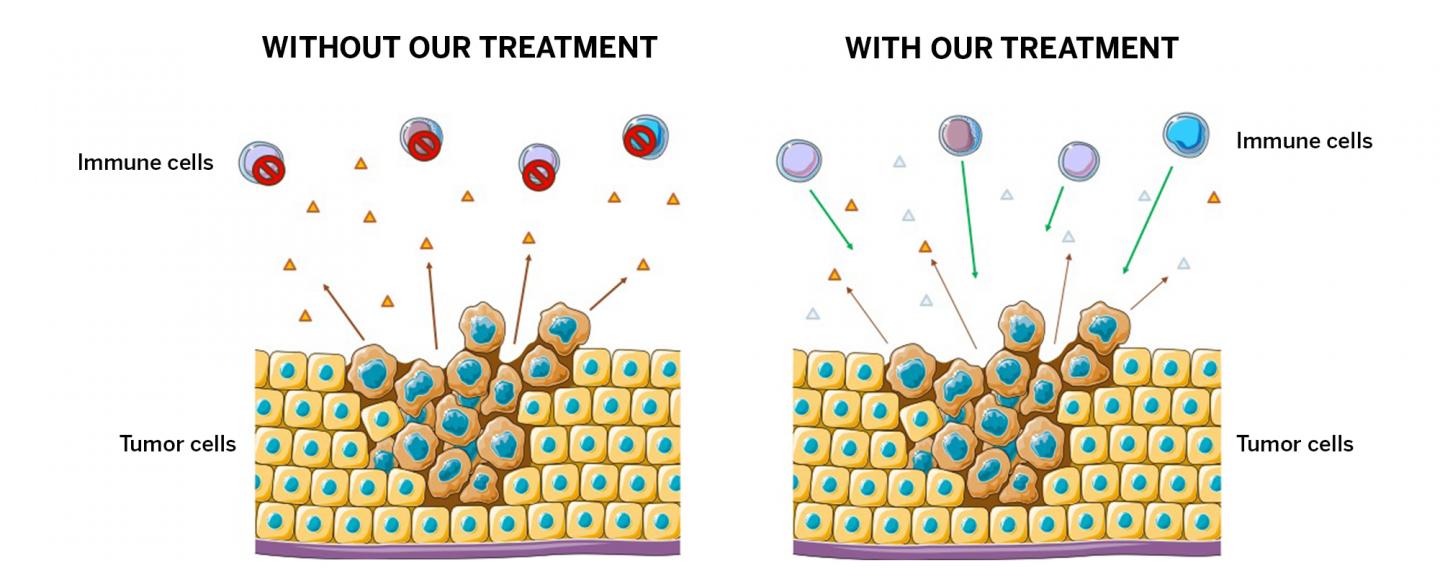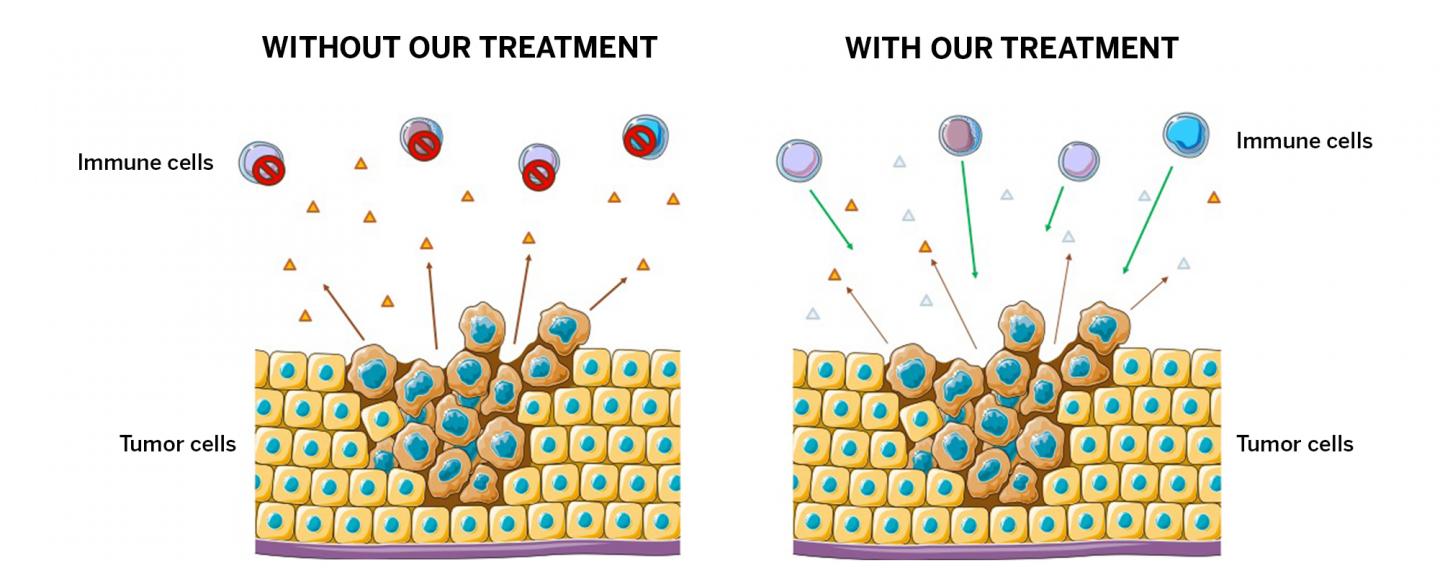
Credit: Norah Ashoura Graduate student Molecular Biology College of Natural Sciences, UT.
AUSTIN, Texas — Researchers at The University of Texas at Austin have developed a new approach to treating cancer using enzyme therapy.
The enzyme, PEG-KYNase, does not directly kill cancer cells but instead empowers the immune system to eradicate unwanted cells on its own. PEG-KYNase is designed to degrade kynurenine, a metabolite produced by numerous tumors that suppresses the immune system. The UT team's findings were published in a recent issue of Nature Biotechnology.
A healthy, fully functioning immune system can combat the spread of cancer cells and eliminate tumors by itself. However, tumors have evolved in multiple ways to suppress the immune system, leading to the growth and metastasis of cancer cells.
"Our immune system constantly polices the body and normally recognizes and eliminates cancerous cells," said Everett Stone, research assistant professor in the College of Natural Sciences' Department of Molecular Biosciences and co-author of the study. "Kynurenine acts as a roadblock to immune cells that impedes normal surveillance; our drug removes this obstacle."
Enzymes have been used in specific treatments before, to treat cancers such as leukemia for example, but this is the first time one has been designed to take on the role of immune checkpoint inhibitor. The researchers are confident this approach could prove effective in treating a variety of different cancers.
The team, led by Stone and professor George Georgiou in the Cockrell School of Engineering, developed an enzyme therapy that stimulates a human immune system abnormally suppressed by cancer cells, unleashing the body's power to fight back against the disease.
Their next step is to initiate clinical trials to test the safety and efficacy of the enzyme.
"Our work presents a new therapeutic approach to overcoming the suppression of the immune system by cancer cells," said Georgiou, who is a professor in the Cockrell School's chemical and biomedical engineering departments, the College of Natural Sciences' molecular biosciences department and Dell Medical School's oncology department. "By relieving immune suppression, the immune system becomes primed to kill cancer cells and eradicate tumors."
###
The research was funded by the Cancer Prevention and Research Institute of Texas, the American Cancer Society and Kyn Therapeutics, the company that is pursuing the clinical development of this approach.
Media Contact
John Holden
[email protected]
512-529-6013
@UTAustin
http://www.utexas.edu
Original Source
https://news.utexas.edu/2018/08/28/new-cancer-treatment-uses-enzymes-to-boost-immune-system http://dx.doi.org/10.1038/nbt.4180





